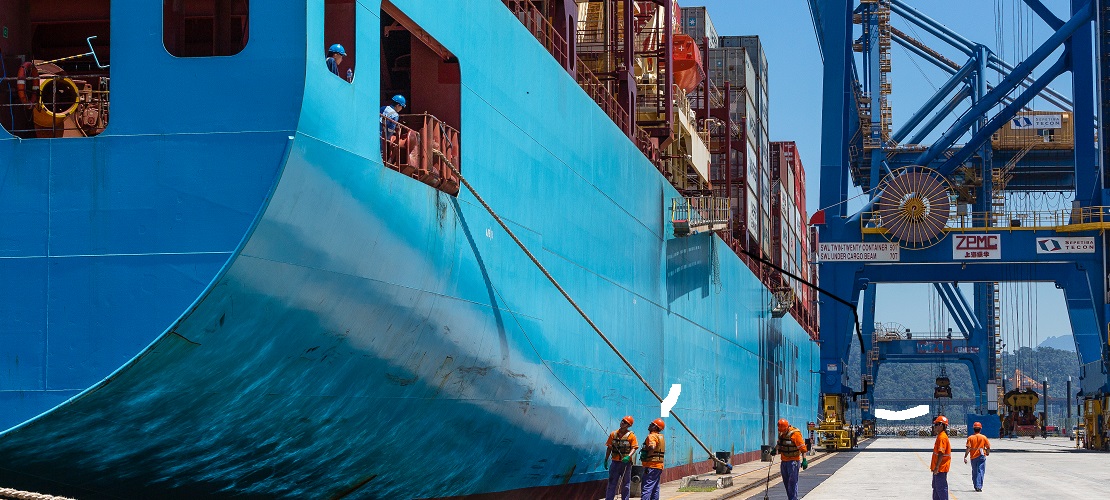
Court approves new method for hiring port workers
Apr, 13, 2021 Posted by Ruth HollardWeek 202115
The TST (superior labor court) has set an important precedent for companies that wish to hire independent workers through unions and not through OGMO (the labor-management bureau), an entity created for this purpose almost 30 years ago. The decision is important because it shows the ministers’ position in a pending judgment that will have a national scope.
In practice, the TST will decide the fate of collective agreements signed by terminals and unions at least four years ago in ports such as Santos (SP), Espírito Santo, Manaus, and Pará. These agreements, made based on the Ports Law ( 12,815 of 2013), have been overturned by regional labor courts.
Under the rule, OGMO intervention could be waived using a provision in an express collective ruling. However, the appellants understand that OGMO’s exclusive function is to provide independent workers who have no employment ties and provide short-term services to several different employees.
One of the agreements canceled was Portocel, located in Aracruz (ES), where Suzano, Cenibra, and Veracel pulp is shipped. In times of increased cargo handling, the company even recruits up to 5,000 independent workers, representing 40% of the workforce.
The MPT (public labor ministry) will appeal against the TST’s decision. According to Edelamare Barbosa Melo, Deputy Labor Attorney General, the discussion goes beyond the collective agreement’s prevalence over the legislature, guaranteed by the labor reform (article 611-A of the CLT (consolidated labor laws). “What is under discussion is the precariousness of the port worker and the deviation from the whole purpose of the union, which is to defend the worker and not the service provider,” she says.
The precedent is important for another trial in the TST’s collective bargaining section, which will have a national scope. In this action, FENOP (the national federation of port operators) asks the Court to declare that OGMO alone is responsible for managing and supplying independent workers. It also requires that unions be prohibited from intermediating labor. There is still no date for the trial (DC-1000360-97.2017.5.00.0000).
Created at the time of the first port modernization law in the early 1990s to replace unions in managing labor in ports, OGMO is financed by companies operating in government ports. By law, operators must create and maintain the bureau. Private terminals do not cover fixed costs, just the direct expenses of recruiting independent workers, such as wages and transportation, indicating a competition conflict of interest.
Attorney Ronaldo Fleury, who worked on implementing the OGMO system, is skeptical of the unions’ ability to intermediate labor, including collecting and transferring wages and charges, controlling working hours, rotating workers, and training. “In practice, it is the exchange of an electronic and fair escalation system for the pleasure of union leaders,” he says.
José Adilson Pereira, president of the National Federation of Dockers, says that the work is done jointly by the union and the company once the collective agreement is signed. According to him, OGMO does not meet the demands of operators and private terminals. “The workers are idle because of this. OGMO must reinvent itself,” he says, citing measures such as protecting terminals against labor liabilities and charging a different amount for recruitment based on cargo handling.
However, the president of FENOP, Sergio Aquino, considers OGMO a global model for managing independent labor. In his view, it is impossible to transfer the bureau’s duties to third parties through negotiations in which it does not even participate. “We are working on management improvements, cost reductions, and liability settlement. But we defend respect for the law”, he says.
Source: Valor Econômico
-
Ports and Terminals
Feb, 01, 2021
0
Cattalini to receive vessels up to 70,000 DWT at Port of Paranaguá
-
Meat
Oct, 24, 2022
0
Brazil’s BRF to form halal meat joint venture with Saudi Arabia’s PIF
-
Other Cargo
Apr, 11, 2022
0
Eggs: Brazilian exports hit the lowest level in seven months
-
Economy
Feb, 06, 2019
0
Brazil’s exports up 9.1% compared with January 2018


